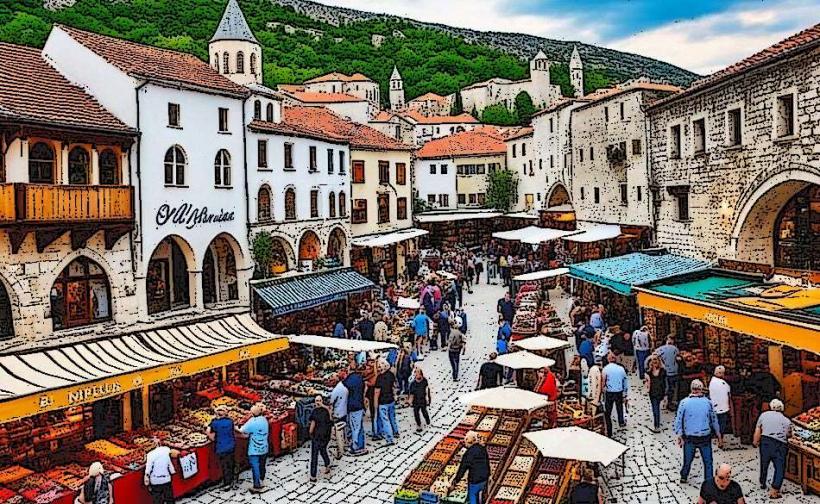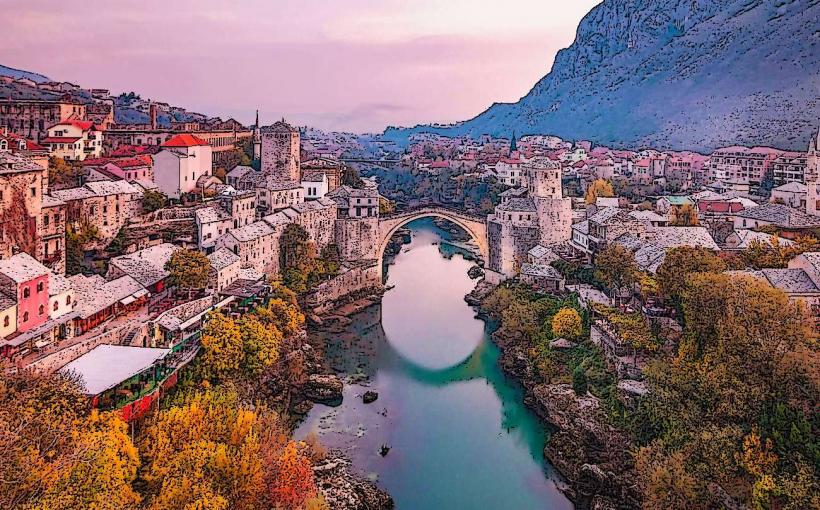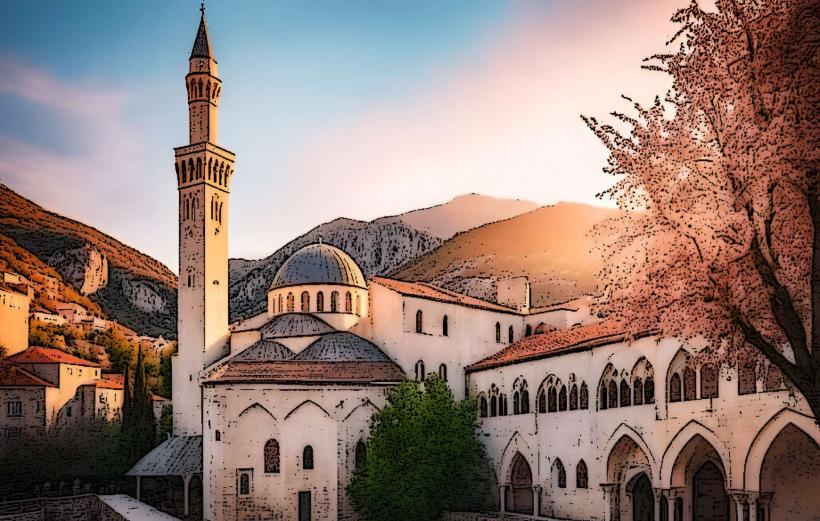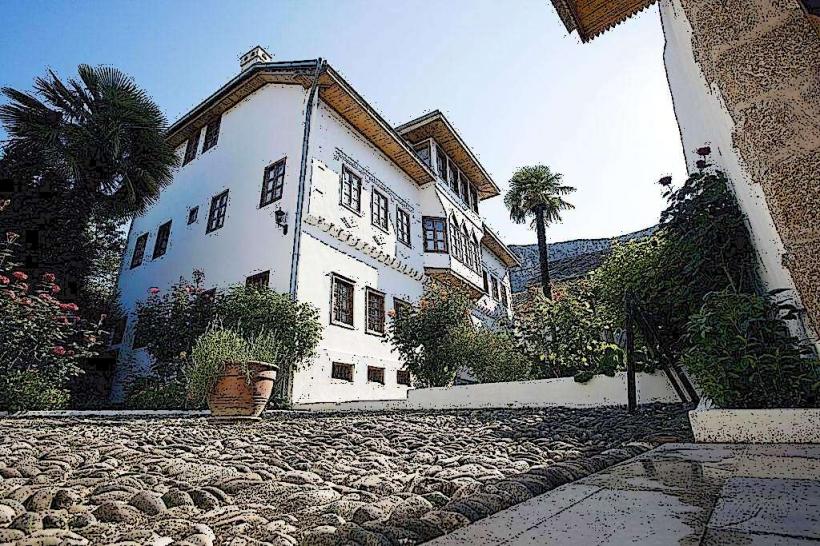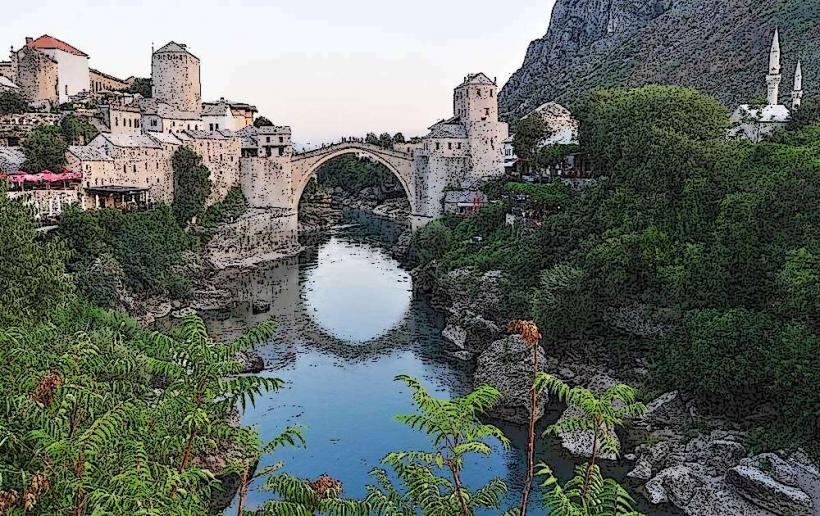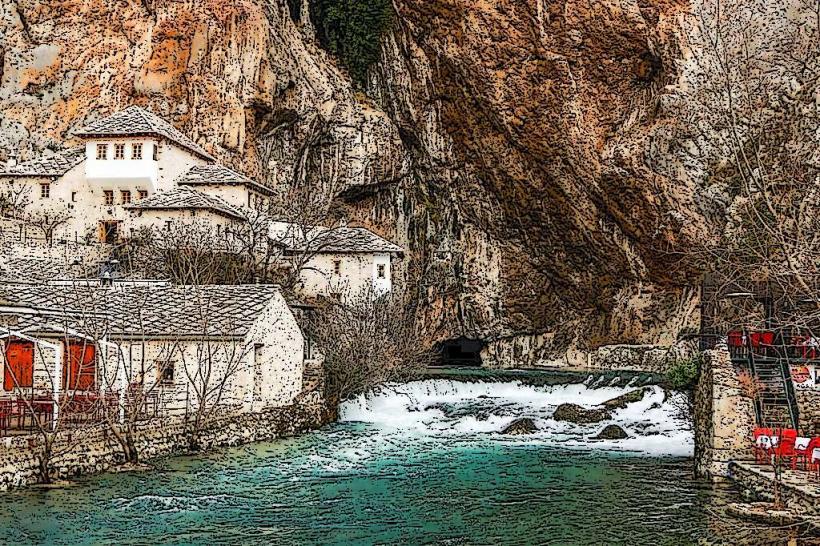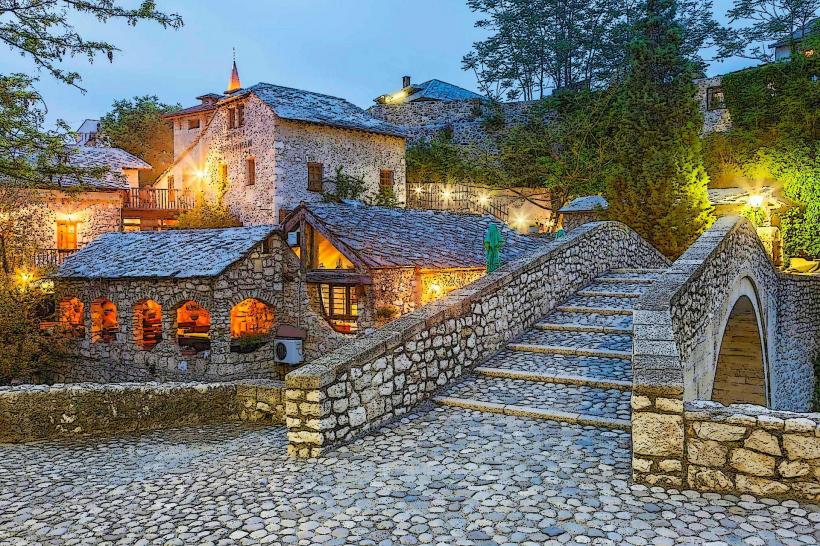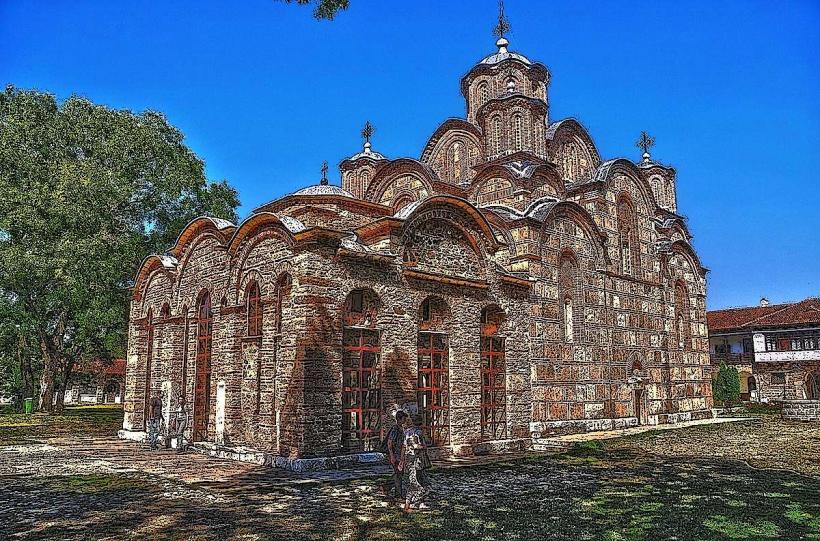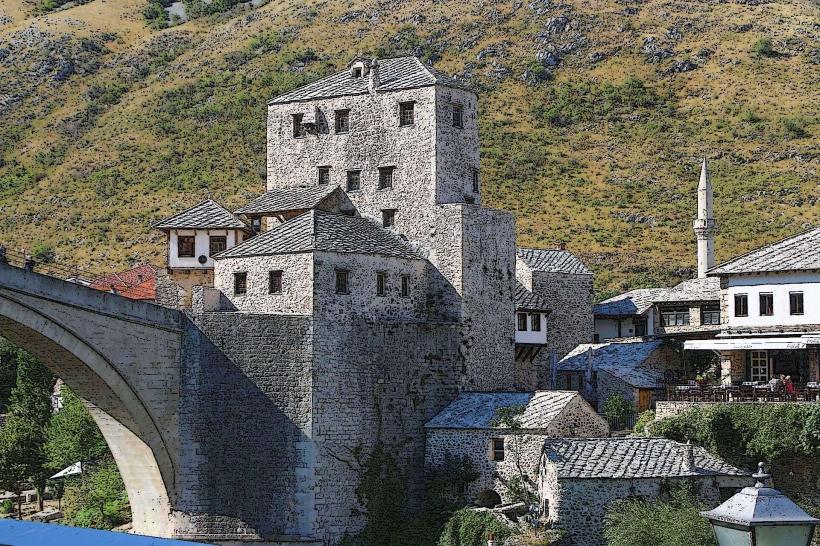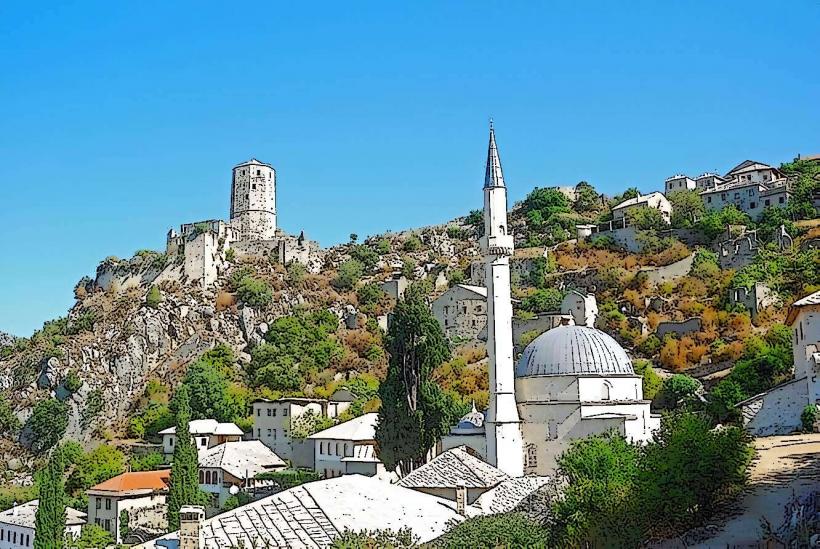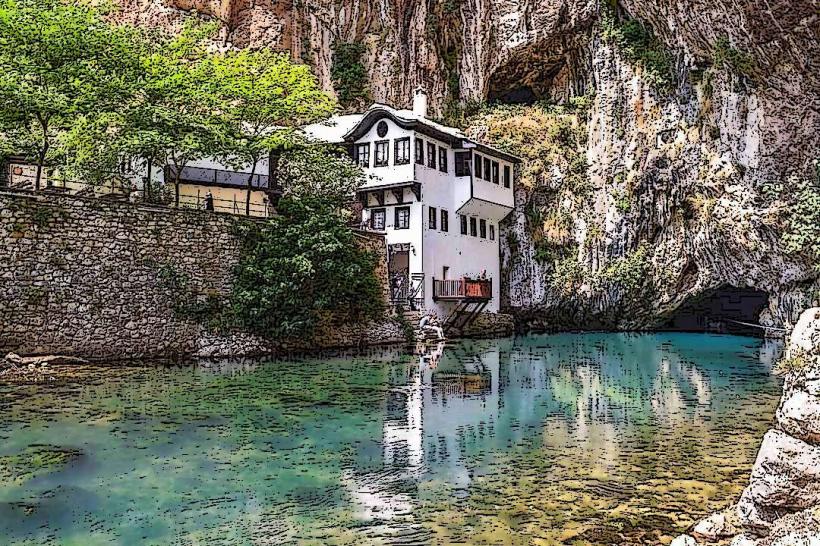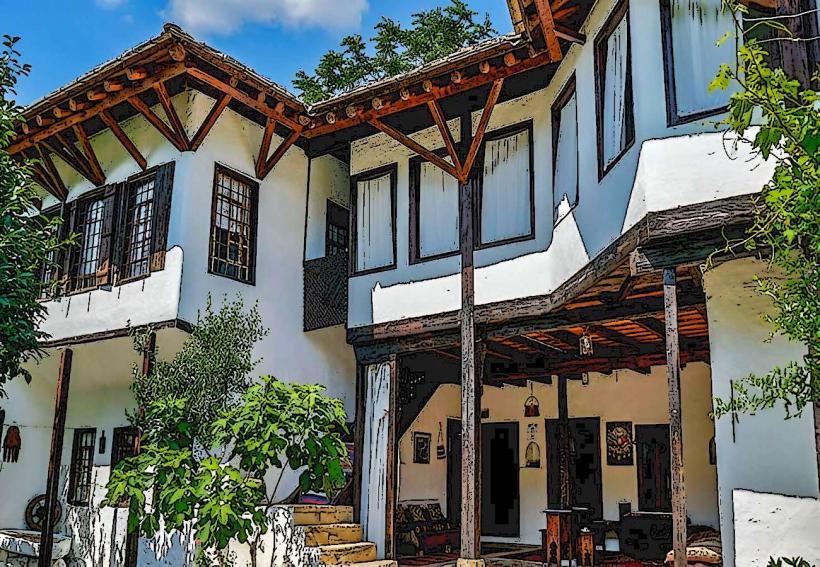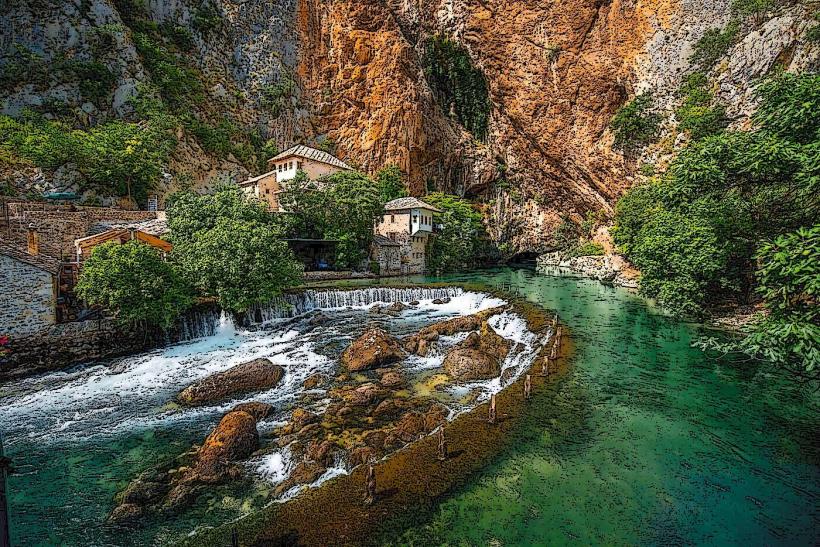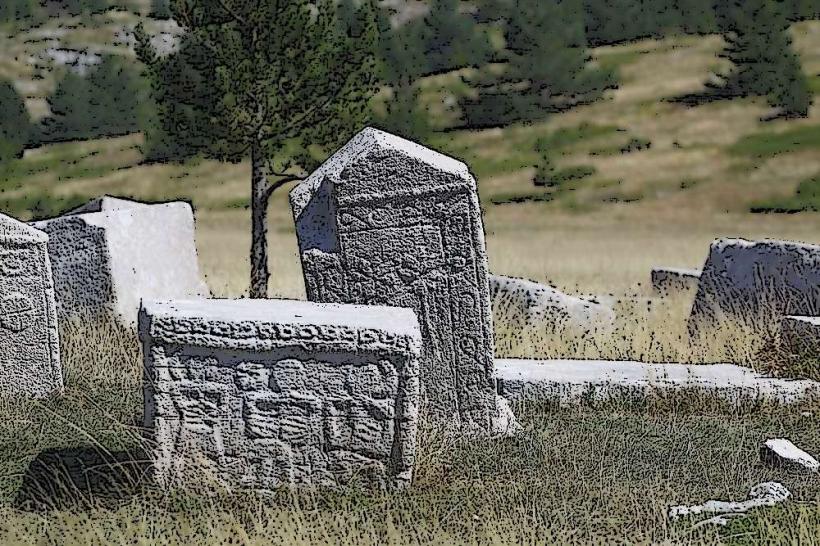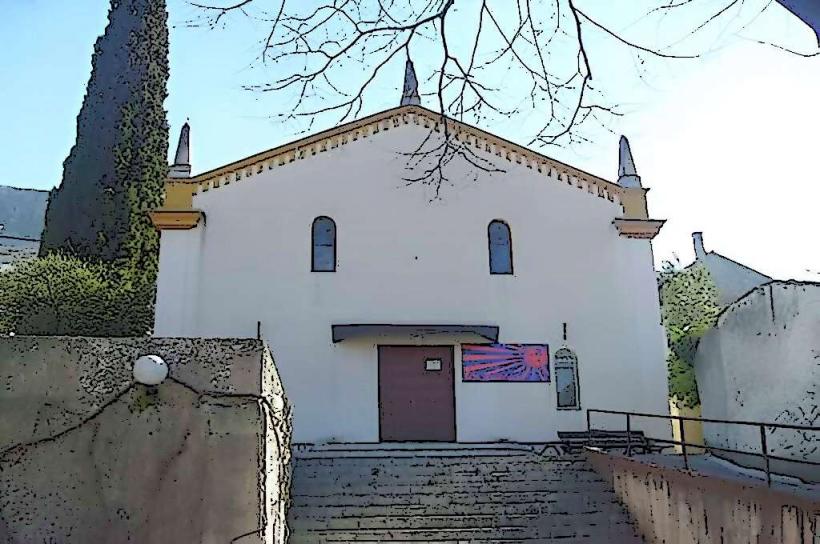Information
Landmark: Partisan Memorial CemeteryCity: Mostar
Country: Bosnia and Herzegovina
Continent: Europe
Partisan Memorial Cemetery, Mostar, Bosnia and Herzegovina, Europe
The Partisan Memorial Cemetery is a monumental architectural park located on a hill in the western part of Mostar. Designed by architect Bogdan Bogdanović and completed in 1965, it serves as a memorial to the 810 soldiers from Mostar who died during World War II.
Visual Characteristics
The site is a "necropolis" built using approximately 12,000 carved stone pieces, including repurposed stone from destroyed traditional houses. It features a series of six cascading terraces connected by curved cobblestone paths designed to resemble the winding streets of Mostar. The central wall is decorated with 630 abstract stone cenotaphs shaped like flower petals, and the highest point of the monument features a large, stylized stone sun.
Location & Access Logistics
The cemetery is located on Nadbiskupa Čule Street, approximately 1.5km West of the Stari Most. Access is via a paved entrance gate near the Bijeli Brijeg stadium. No public bus lines stop directly at the gate, but the site is a 20-minute walk from the city center or accessible via local taxi. A small, unmanaged parking area is available at the street level near the entrance.
Historical & Ecological Origin
Commissioned in 1959 and inaugurated by Josip Broz Tito in 1965, the monument was built on a karst hill overlooking the Neretva valley. It was designed to represent the "city of the dead" looking upon the "city of the living." The vegetation consists of Mediterranean cypress and pine trees, though many original plantings were lost due to lack of maintenance in the post-1992 era.
Key Highlights & Activities
Visitors can traverse the terraced levels to view the abstract stonework and the names of the fallen soldiers inscribed on individual markers. The upper terraces provide panoramic views of the Mostar skyline and the surrounding Velež mountain range. The site is a primary example of "socialist modernism" and Yugoslav monumental architecture.
Infrastructure & Amenities
There are no active restrooms, water fountains, or food vendors on the cemetery grounds. Shade is limited to the perimeter trees as the main terraces are exposed to direct sunlight. 4G/5G cellular signal is strong throughout the complex. The site is frequently isolated, and visitors should exercise caution due to uneven, damaged cobblestones and the lack of official security.
Best Time to Visit
The site is technically open 24 hours a day with no entrance fee. Morning visits are recommended for the best lighting on the central stone sun and to avoid the intense afternoon heat reflected by the limestone. The monument is particularly atmospheric during the autumn months when the surrounding foliage changes color.
Facts & Legends
Bogdanović designed the cemetery without using any traditional religious or ideological symbols (such as the red star), opting instead for universal symbols like the sun, water, and flowers to promote reconciliation. In recent years, the site has become a focal point of local debate regarding heritage preservation, as it has suffered significant vandalism, including the systematic destruction of all 700 stone markers in a single night in 2022.
Nearby Landmarks
Bijeli Brijeg Stadium (HŠK Zrinjski) - 0.2km North
Mostar Cathedral (Mary Mother of the Church) - 0.4km East
Spanish Square (Španski trg) - 0.8km Northeast
Mepas Mall - 1.2km Northeast
United World College in Mostar - 0.9km East

